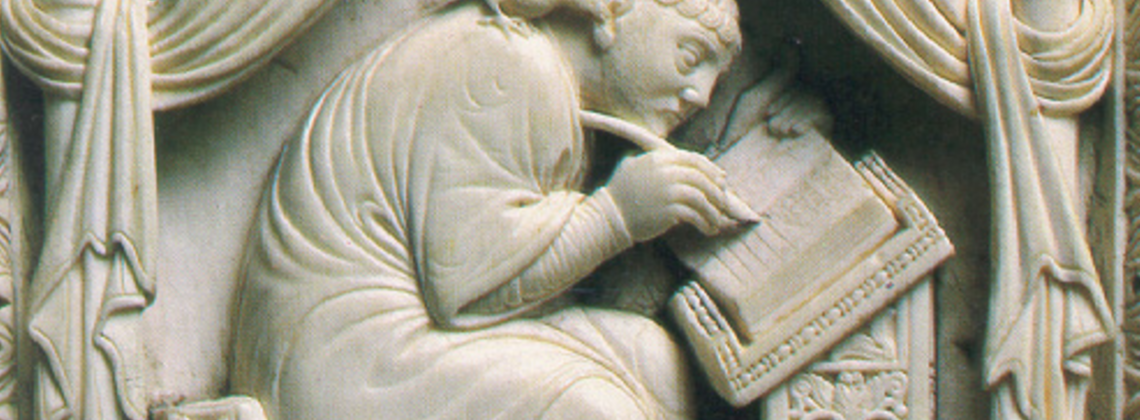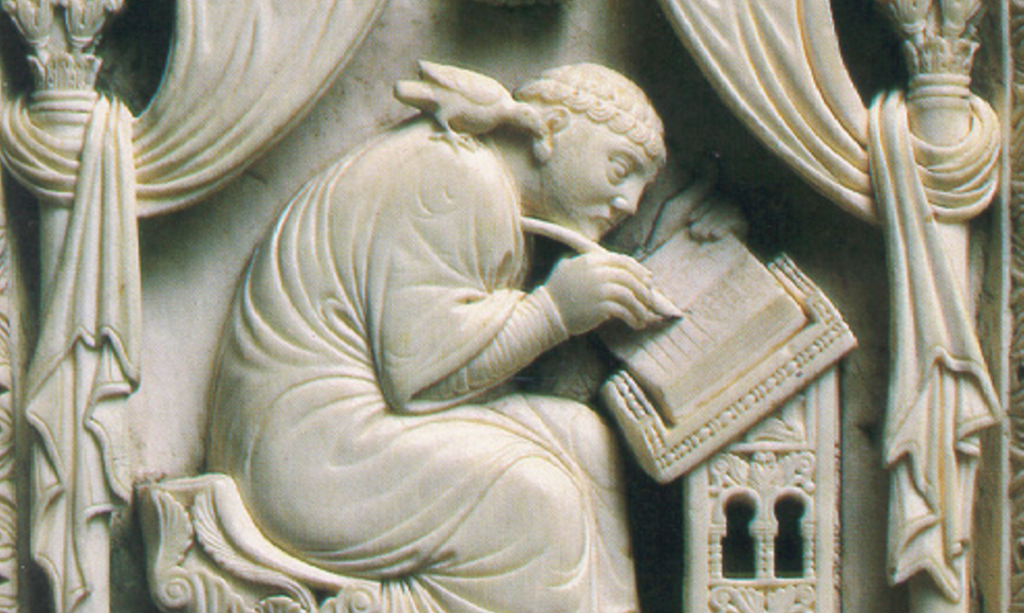

Bring the fire
First of all, there’s no such thing as Christian art. If you are a Christian person and you want God to be honored in some way by your writing, then make the best, most honest art your imagination and particular set of experiences allows you to make the moment you set your hands to your keyboard. Full stop.
If you have to stitch an adjective onto the front of “art,” then that’s what you’re really concerned with. Not art. Go and do that thing instead, whatever it is. Turn your descriptor into a verb. And be blessed to do it. Do it with happiness and sincerity. There’s good art and there’s bad art, and bad art comes out when you compromise art-making with some other intent. Besides, there’s never any guarantee, even when you approach art-making honestly, that the art you make will be any good. Making good art is hard enough without forcing it to marry some other purpose.
Are you a Christian? Are you a writer? I say again: Make good art. Are you not sure what that is? Go find some, and don’t look for it in the places you’ve always looked. Stop reading C. S. Lewis. Stop reading J. R.R. Tolkien. Don’t read anymore G. K. Chesterton or George Macdonald. You’ve likely already had your fill of them for several lifetimes. They may be the beginning of your personal literary canon, but remember: For you, a writer, that canon is not a library but a well. So take one year off from these four in particular. Five years would be better, but one year at least. Take six months off from Flannery O’Connor. The contemporary Christian imagination is wound much too tightly around these writers’ bodies of work.
Take up instead: Sherman Alexie, Nelson Algren, Margaret Atwood, James Baldwin, Lucia Berlin, Raymond Carver, Douglas Coupland, e.e. cummings, Lydia Davis, Annie Dillard, Clyde Edgerton, Roxanne Gay, Zora Neale Hurston, Shirley Jackson, Denis Johnson, Edward P. Jones, Etgar Keret, Jack Kerouac, Barbara Kingsolver, Gabriel Garcia Marquez, Cormac McCarthy, Haruki Murakami, Tim O’Brien, Jose Olivarez, Ann Patchett, Walker Percy, Annie Proulx, Salman Rushdie, Carl Sandburg, George Saunders, Mark Twain, Kurt Vonnegut.
There are many others. Some of them are professing Christians, some are professing atheists, and others have never felt the need to publicly profess any kind of faith. Fine. What binds them, what makes their work valuable to you, the burgeoning writer, is that they make good art. That you should read them has nothing to do with, at least foremost, the deity to whom they pray or the deity in whom they don’t believe, nor the deity to whom you pray and in whom you believe. Read them because they’re good, not because you think they do or don’t have anything to say about God.
“Christian art,” particularly as it’s expressed in fiction, torpedoes itself in two ways.
First, “Christian fiction” means to begin with a particular religious or moral conclusion in mind. The work becomes an attempt to prove that conclusion, in which the trappings of story (characters, setting, etc.) are loosely sketched. It’s similar to how a logician syllogizes the world. The writing is tied not to the certainty that any artistic conclusion may or even will be God, in the end, but that any conclusion must be God. The writing bends like a deflated bike tire around this flimsy absolute. Not that God is flimsy. What is flimsy is starting a quest only when you’re 100% certain of how, when, and where it will end. That’s not art. It’s pantomime.
Shall I overstate? It requires zero faith in anything at all—let alone God—to locate God in a piece of writing before you’ve actually looked for him. All that does is circumvent your sense of wonder, poison your creativity, atrophy your faith, hamstring your ability to take artistic risks, notify your readers you aren’t up to the writerly task, and blunt your readers’ abilities to consider God. As a Christian person, would you not say it’s a joy to follow God? So follow him through your work. Quit telling him where to stand and how to speak. You say you want the reader to find God in your work? Then remember: You are your own first reader. When you write, you’re talking to yourself before you talk to anybody else.
Be true to your sense of self and all you’ve been through. Don’t permit the writing to become a doomed exercise in shoe-horning your own experiences into a frayed file folder labeled “God Wins” that you then hand over to your readers and expect them to (A) believe it’s a novel and (B) believe that you believe God actually wins.
Second: It’s bad writing that concludes. If your fiction feels like it’s veering toward a moral conclusion, stop. Back up and rewrite. Scrap the whole thing if you have to. Don’t forget what Tim O’Brien says: “If a story seems moral, do not believe it.” The interpolation for you, sitting at your keyboard, is: “If I set out trying to teach my readers a lesson with this thing, I better quit writing it.” Bad fiction writing is filled with both conscious and unconscious didacticism, and since the net effect of either is degradation, there are no free passes. God may forgive, but savvy readers won’t.
Preconceived moralizing jacketed in fiction aims for the head and the heart. If you want to be a good writer, aim elsewhere. Shoot lasers into their retinas, detonate bombs beside their ears, and run sandpaper (or silk!) over their fingertips. Good writing, artistic writing, opens new worlds in which we see human experiences with entirely new lights, lights only you can shine. The reader must see, hear, and feel, must thoroughly know, your imagined and specific correlations to real-world abstracts. Your work should cause our common condition, here on darkest earth, to shine in heretofore unseen ways. You are Prometheus, don’t forget. Your job is to bring us fire.
Paul Luikart is the author of several short story collections , including The Realm of the Dog. He serves as an adjunct professor of fiction writing at Covenant College in Lookout Mountain, Georgia and lives in Chattanooga, Tennessee.
Image: Gregory and his scribes (Vienna, Kunsthistorisches Museum, 10th century)